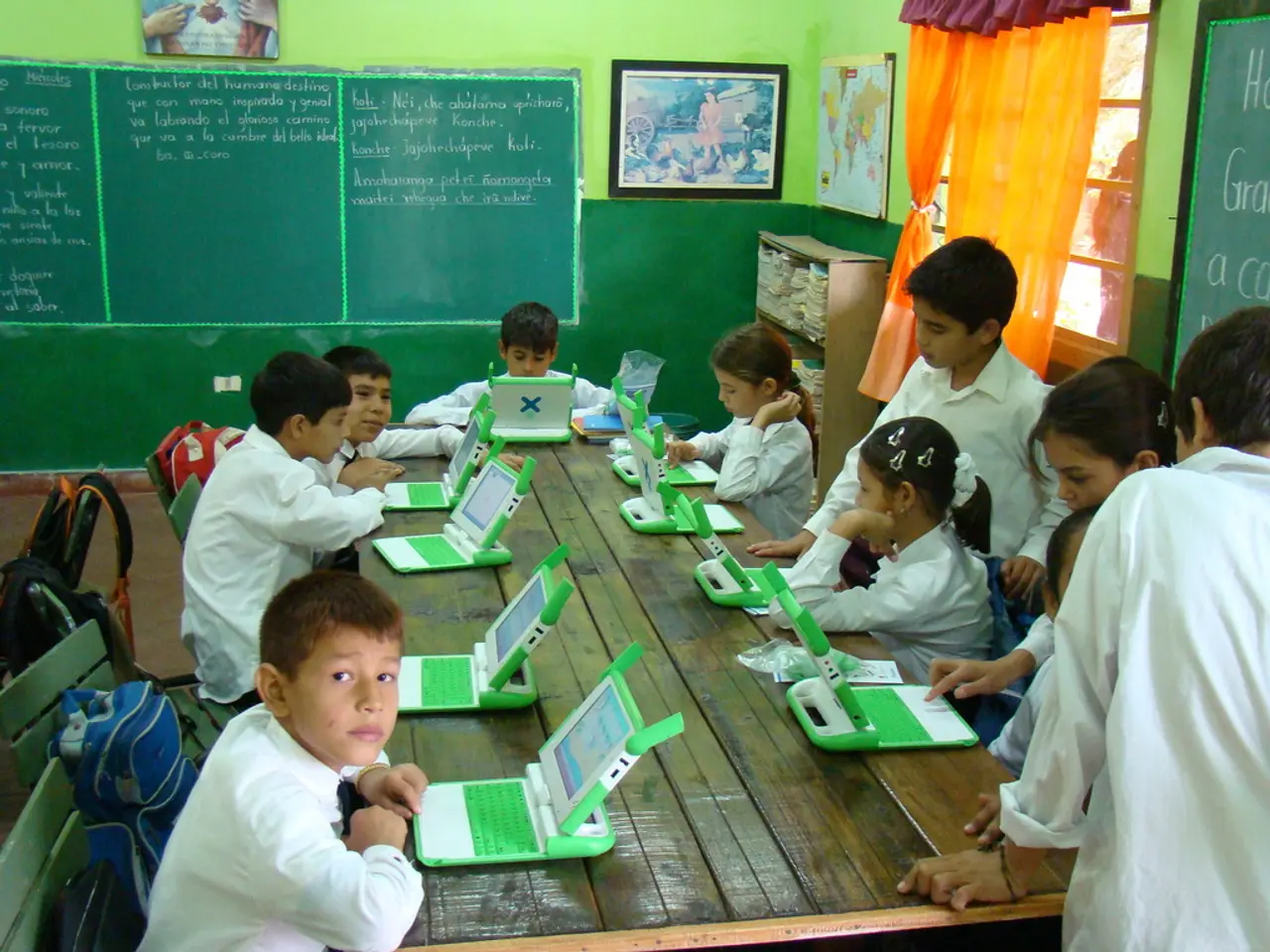Embracing Technological Advancements in Education: Policy Proposals for Modernizing School Education (OECD, 2025)
The Organisation for Economic Co-operation and Development (OECD) has released a comprehensive working paper titled "Policy Survey on School Education in the Digital Age," providing insights into how education systems worldwide are adapting to digital education. The paper, authored by Luka Boeskens and Katharina Meyer, offers a detailed analysis of various key areas.
The survey, conducted across 37 jurisdictions, including OECD Member Countries, sub-national entities, and non-member economies, reveals several notable trends. For instance, only 8 of 32 strategies include AI-specific initiatives, and just 6 contain measurable, time-bound AI goals. Furthermore, only 11% of jurisdictions run digital mentoring schemes for parents, and 25% of systems lack a central plan for disadvantaged students' device access.
Despite these challenges, the survey also highlights promising developments. All surveyed systems include digital skills in their curricula, and 77% of jurisdictions offer free digital courses for teachers. However, the way these skills are delivered and assessed varies widely. Only 15% of educational systems require in-service digital training for teachers, and assessment of students' digital skills remains limited.
One area where digital skill development loses traction is assessment, with international benchmarks like ICILS being more commonly used than home-grown metrics. Regulation lags behind innovation, especially in areas like artificial intelligence and algorithmic transparency. Few systems evaluate the actual impact of digital education on learning outcomes, well-being, or equity.
In terms of governance and regulation, jurisdictions prefer guidelines over binding regulations for digital education, with data protection being the only universal area with legal backing. When it comes to digital resources, learning software is more prevalent than assistive technology. Only a few systems define procurement standards for security, sustainability, and interoperability.
The survey data shows that assessment is where digital skill development loses traction, with international benchmarks like ICILS being more commonly used than home-grown metrics. To close critical gaps, education systems must align strategy, capacity building, governance, and evaluation within a coherent digital transformation agenda. School-level autonomy is often unmatched by support, particularly in procurement and pedagogical guidance.
The OECD's working paper underscores the importance of integrated, multi-level approaches that combine technological investment with human-centered strategies to foster students' digital skills, well-being, and career readiness in the digital age. The recommendations emphasize early and ongoing career guidance, strong school-employer collaborations, investment in teacher professional development, equitable infrastructure, and data-informed approaches to policymaking. The goal is to create resilient education systems that effectively prepare young people for digital futures and labor market challenges.
- The survey suggests that education systems must align their digital transformation strategies with capacity building, governance, and evaluation to address the critical gaps in digital skill development, particularly in the area of assessment.
- The OECD working paper underscores the importance of integrated, multi-level approaches that combine technological investment with human-centered strategies, including early and ongoing career guidance, strong school-employer collaborations, investment in teacher professional development, equitable infrastructure, and data-informed policymaking.
- The paper also highlights the need for a coherent digital transformation agenda that prioritizes resilient education systems, preparing young people for digital futures and labor market challenges, and ensuring that these systems are sustainable, equitable, and utilize artificial intelligence responsibly.




